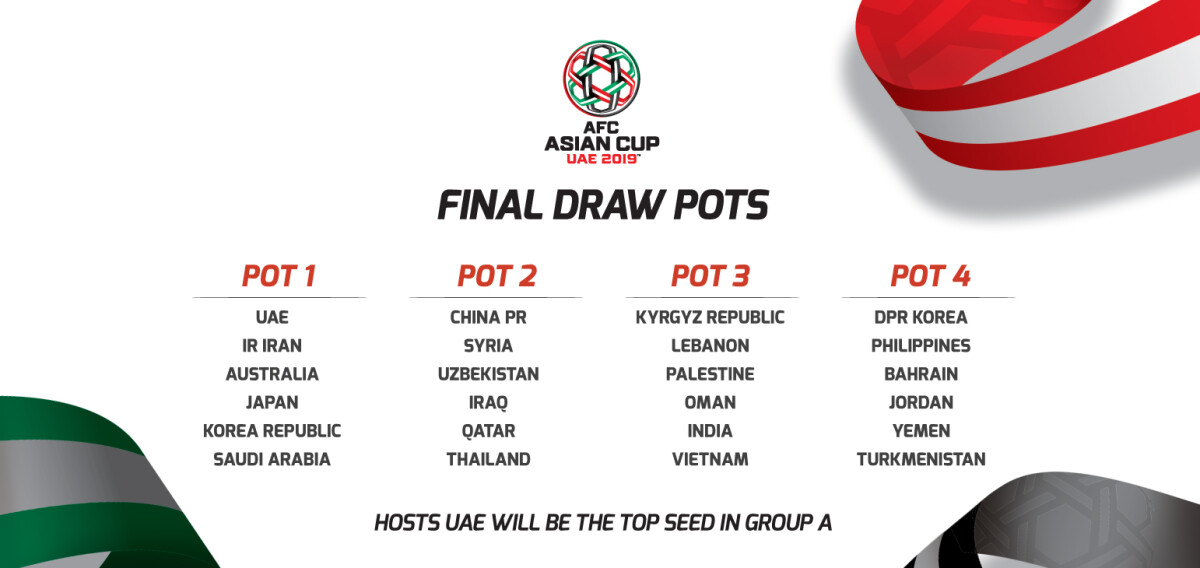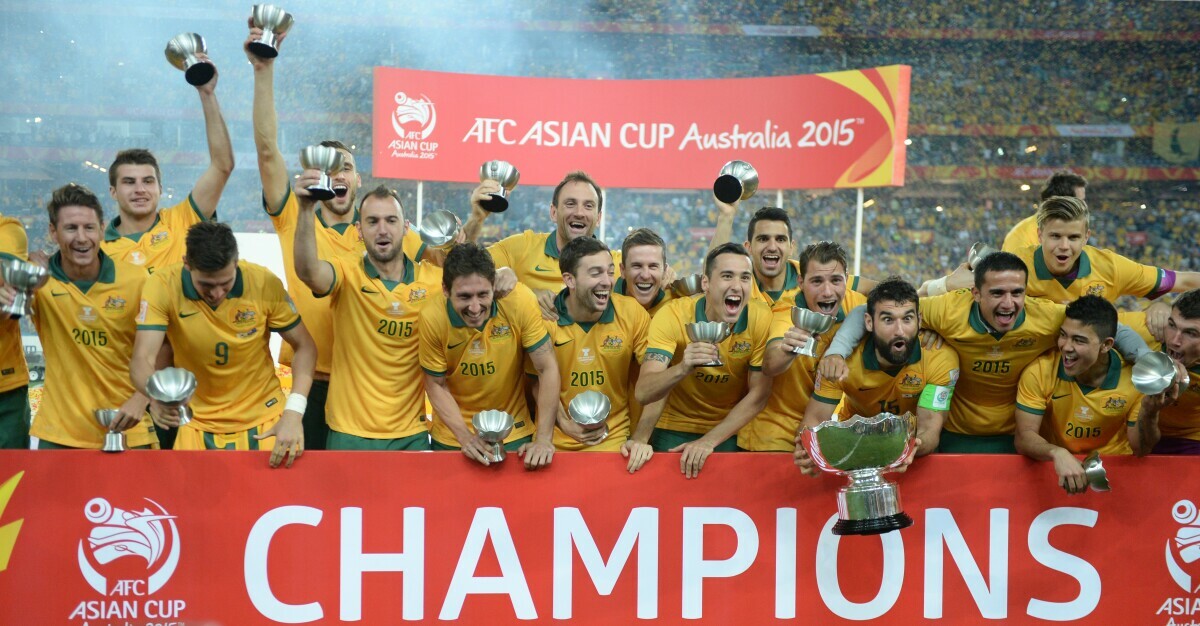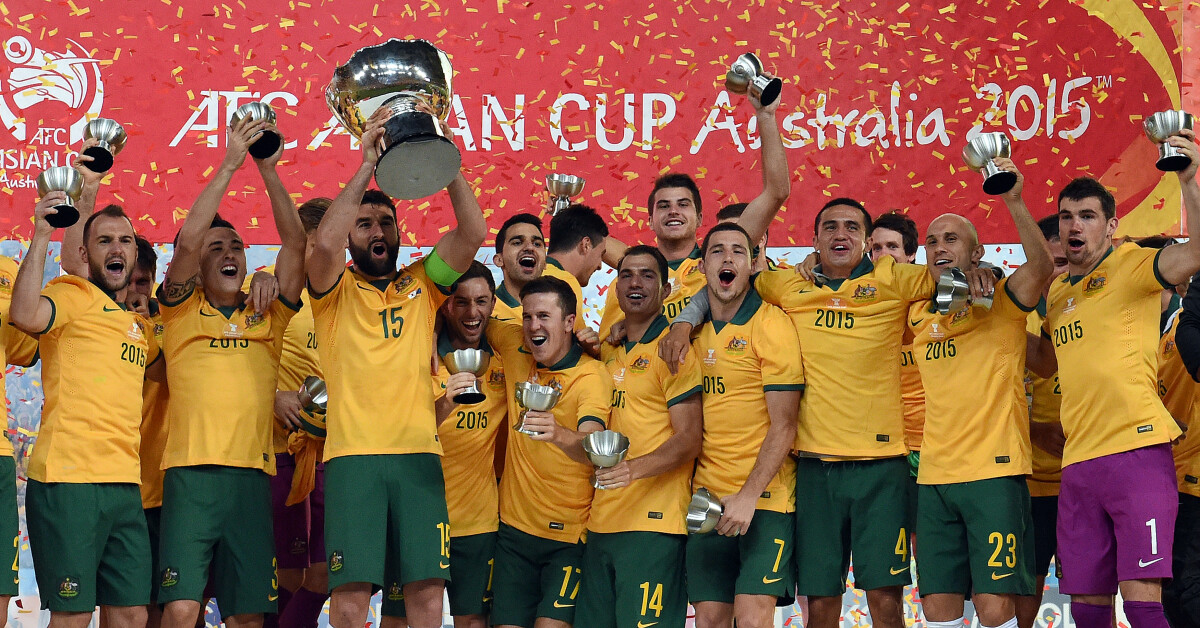
Thu, 28 Oct, 2021

Kuala Lumpur: The seeding for the eagerly-anticipated draw for the most prestigious competition on the Continent, the AFC Asian Cup UAE 2019, which will take place on May 4, 2018, 7:30pm (UAE time), in Dubai has now been confirmed following Thursday's release of the latest FIFA World Ranking.
In line with previous editions of the AFC Asian Cup, the hosts United Arab Emirates have been allocated the first position in pot one in the draw to be held at the Armani Hotel in the UAE’s iconic Burj Khalifa, the world’s tallest building. This will ensure they will play the opening match on January 5, 2019, at the Zayed Sports City Stadium.
The 12 teams, who received an automatic bye into the AFC Asian Cup UAE 2019 after qualifying for the FIFA World Cup Russia 2018 - Asian Qualifiers Final Round, have already secured their places in pots one and two and have been allocated spots following Thursday’s publication of the latest FIFA ranking.
Thu, 28 Oct, 2021

Kuala Lumpur: The decision to expand the AFC Asian Cup to 24 teams has had an immediate impact with Kyrgyz Republic, the Philippines and Yemen qualifying for the Finals for the first time in history.
A frenetic final day of qualifying for the AFC Asian Cup UAE 2019 saw DPR Korea, the Philippines and Yemen taking the last three available spots on Tuesday.
Kyrgyz Republic ended their campaign with a 2-1 win over India in Group A but they had sealed their place in the Finals after defeating Myanmar 5-1 last Thursday.
Join the-AFC.com as we take a look at the three teams who have taken their place among the Continent’s best for next January’s extravaganza in the United Arab Emirates.
Thu, 28 Oct, 2021

Kuala Lumpur: From its humble beginnings in 1956, the AFC Asian Cup has developed into the Continent’s premier football tournament, bringing together the top national teams from the length and breadth of Asia to compete for one of international football’s most sought-after prizes every four years. With the AFC Asian Cup 2019 UAE exactly a year away, the-AFC.com reviews how the competition has progressed into the Continent's most prestigious football tournament.
The tournament had its roots in the formation of the Asian Football Confederation in Manila in 1954. The 12 founding members of the AFC sought to shape the development of the game in Asia and one of the keys to achieving that aim was the organisation of a regional competition for the continent’s national sides.
Some two years later, the first ever AFC Asian Cup was staged in Hong Kong with eight Member Associations vying for the right to be declared champions of Asia.
Over half a century later, the AFC Asian Cup has grown to encompass teams from throughout the continent and has become the barometer by which the continually changing balance of power in Asian football is measured.
From the dominance of Korea Republic in the early years of the competition, the AFC Asian Cup became the preserve of the Islamic Republic of Iran who won three consecutive tournaments from 1968 to 1976.
Thu, 28 Oct, 2021

Kuala Lumpur: With a year to go until the 17th edition of Asia’s marquee national team competition kicks off in the United Arab Emirates, we wind the clock back three years to reflect on the previous chapter of the tournament: AFC Asian Cup 2015 Australia.
Mile Jedinak raised the AFC Asian Cup trophy into the Sydney night sky as tournament hosts Australia capped a remarkable 23 days in January 2015 with victory over Korea Republic in the final of the 16th edition of the continental championship in front of a sold-out Stadium Australia.
The Socceroos’ victory in extra-time over the two-time champions was a fittingly dramatic end to a tournament that boasted high-quality football, sold-out venues, record-breaking media coverage and – finally – a new champion.
James Troisi scored the winning goal for the Australians after Son Heung-min cancelled out Massimo Luongo’s opener in second half injury time, taking proceedings in to extra-time and setting up a grandstand finish.
The 2015 AFC Asian Cup win was Australia’s first since joining the Asian Football Confederation in 2006, and saw the men’s team match the achievement of the country’s women, who won the AFC Women’s Asian Cup in 2010.